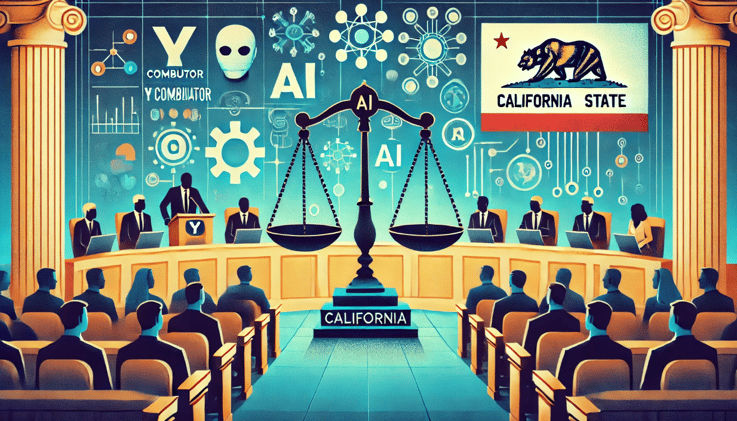Y Combinator, a venture capitalist firm renowned for its support of innovative companies like Airbnb, Dropbox, and DoorDash, has expressed strong opposition to Assembly Bill 1047, also known as the California AI Safety Testing Act. This bill was introduced by State Senator Scott Wiener to establish safety testing requirements for large artificial intelligence (AI) models, with the aim of mitigating potential catastrophic harm.
Bill Overview and Y Combinator’s Response
The proposed legislation requires developers of significant AI "frontier models" costing $100 million or more to undergo rigorous risk assessments. Senator Wiener has defended this bill as a prudent measure, emphasizing its intention to act cautiously to avoid unintended consequences. However, the introduction of this bill has sparked significant controversy within California’s tech ecosystem.
Y Combinator, led by Garry Tan, has taken a firm stance against the bill, stating that it could have devastating effects on the state’s AI industry. The venture capital firm argues that such strict regulations would deter talent and investment in AI-related startups, particularly those operating at the frontier of artificial intelligence development. This is the first time Y Combinator has publicly opposed a piece of legislation, with its head of public policy expressing concerns about the potential harm to California’s growing tech sector.
Grassroots Opposition
Luther Lowe, head of public policy at Y Combinator, has highlighted the swift and vocal opposition from the firm’s community of AI startups. He refers to this group as "Little Tech," emphasizing their role in shaping policy within California’s tech landscape. Lowe stressed that the bill could have a chilling effect on the growth of emerging AI companies, despite its focus solely on large-scale models.
Senate Bill 1047 Details
SB 1047 proposes mandatory safety testing for AI models classified as "frontier models," defined by their potential to cause catastrophic harm. The legislation mandates developers to undergo rigorous evaluation processes to ensure that these models are safe and capable of being used responsibly. Senator Wiener has framed the bill as a balanced approach, aiming to strike a careful balance between innovation and regulation.
Industry Concerns and Rebuttals
The AI industry has shown mixed reactions to the proposed legislation. While some companies have expressed support for the bill’s intention to prevent harm, Y Combinator has issued a strong rebuttal. The venture capital firm argues that the bill could have far-reaching implications for California’s tech economy, potentially stifling competition and innovation.
In a recent letter to the Assembly Judiciary Committee, Y Combinator warned that the bill could undermine the state’s tech ecosystem by discouraging investment and talent from entering the AI field. The firm also emphasized concerns about liability claims arising from the use of AI models, which they argue could result in unintended consequences.
Senator Wiener has countered these claims, asserting that the bill is not designed to penalize developers but rather to ensure the safe deployment of AI technologies. He rejected accusations of widespread non-compliance, stating that the legislation targets only large-scale models and should not impact smaller startups or innovation-driven ventures.
Public Support and Legislative Process
Despite significant opposition from the AI community, public support for SB 1047 appears strong. A recent poll by David Binder Research, commissioned by the Center for AI Safety, found that 77% of likely voters favor the bill. Wiener has characterized the debate as a friendly dispute among friends, expressing respect for Y Combinator’s position while insisting that the firm’s opposition is based on inaccurate information.
As the bill moves forward through the legislative process, its potential impact on California’s AI landscape remains a contentious issue. The legislation raises important questions about the balance between innovation and regulation in the rapidly evolving field of artificial intelligence. While some see it as a necessary step to ensure safety and accountability, others view it as overly restrictive and potentially harmful to the industry.
The ongoing debate over SB 1047 underscores the critical need for thoughtful policymaking in the realm of AI technologies. As the tech sector continues to grow and evolve, stakeholders must carefully consider the implications of regulations on both innovation and economic development. The opposition from Y Combinator and other prominent firms highlights the complex interplay between technological advancement and ethical considerations.
In conclusion, while SB 1047 represents a significant step toward addressing potential risks associated with AI technologies, its implementation must be approached with care to ensure that it serves as a catalyst for progress rather than a barrier to innovation.




